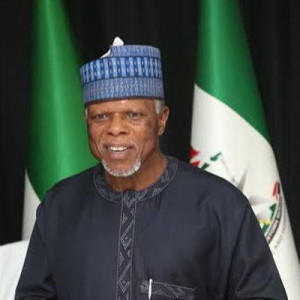The Senate and some stakeholders Monday showed displeasure over the absence of Comptroller General of the Nigeria Custom Service (NCS), Hameed Ali at a one-day public hearing on “A Bill for an Act to Repeal the Customs and Excise Management Act Bill 2016.”
The public hearing, organized by the Senate Committee on Customs, was held to articulate ways and means to repeal the 58-year Customs and Excise Management Act (CEMA) in order to enhance the dwindling efficiency of the body.
The leadership of the Senate, committee members and the stakeholders were taken aback when they discovered that Ali did not only stay away from the crucial public hearing but failed to send a senior Customs official as his representative.
The Senate did not take the absence of the Customs boss from the event lightly.
The upper chamber said that it believed that Ali’s action was a deliberate attempt to treat it with ignominy as well as to hold it in contempt.
Chairman, Senate Committee on Customs and Excise, Hope Uzodinma, noted that despite the absence of Ali, the National Assembly was determined to amend the Customs and Excise Act to ensure the emergence “of an effective, efficient and result-oriented department or agency.”
Uzodinma said that the Senate was also determined to ensure that the process of revenue collection was strengthened in accordance with best practices.
“Customs department of our dear country ought to be a major revenue earner that should be capable of funding at least 50 per cent of the national budget.
“This should also be a critical department that should boost non-oil revenue of the government and fund infrastructural development.
“Why is our own story different? The answer is simple. For 58 years, our Customs department has operated with a Colonial Act that has not only become obsolete and unrealistic but fraught with many loopholes for revenue leakages. It is not the best thing that has happened to the customs and excise department that to date it has been guided by a 1958 Colonial Act.”
Senate President, Abubakar Bukola Saraki who inaugurated the public hearing noted that the move to repeal the Act was borne out of Senate’s desire to reposition the NCS with a view to ensuring that the agency “plays the pivotal role it is expected to play as a major funder of the federal budget.”
Saraki said introducing the bill had become imperative in view of “the very critical role that the custom plays in the economic and security life of our country” adding that “Customs remains one of the most important sources of government revenues.”
“With government revenues dwindling rapidly at a time when we have so much to do, this has further made the need for us to block all leakages and possible inefficiency points in our revenue profile an urgent national duty.
“When the 8th Senate came on board, we promised that we would seek to introduce new laws to improve revenue generation, curb corruption, improve accountability and governance. This bill is one of those bills, which even our private sector has identified as critically important to doing business, and relates significantly to the cost of doing business in general.
“This bill clearly represents a clear message from the Senate that we are ready to do what it takes to empower our revenue agencies to perform their duty to ensure that our country’s economy continues to competitively perform even in the face of dwindling oil market prospects. We are determined and are ready to retool our laws to achieve a more diversified Nigerian economy driven by innovative private sector and efficient government support.
“The operations of the Customs will be key in injecting transparency and accountability in the revenue systems,” Saraki insisted.
Copyright Ships & Ports Ltd. Permission to use quotations from this article is granted subject to appropriate credit given to www.shipsandports.com.ng as the source.

